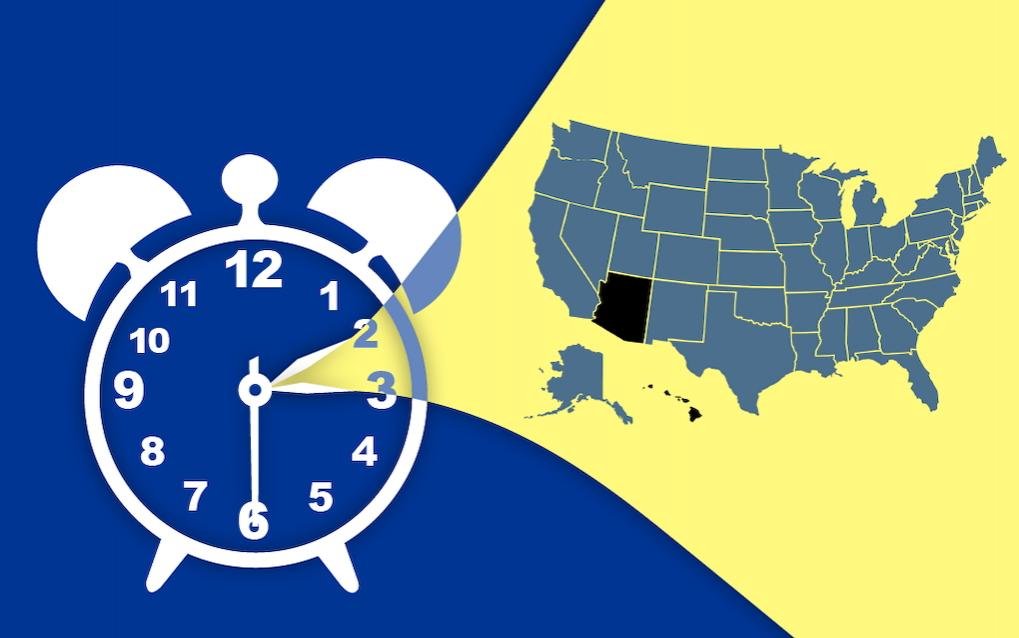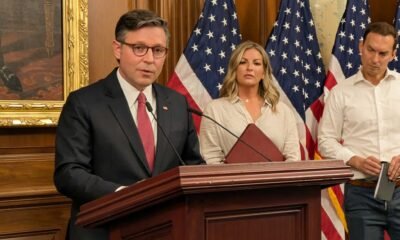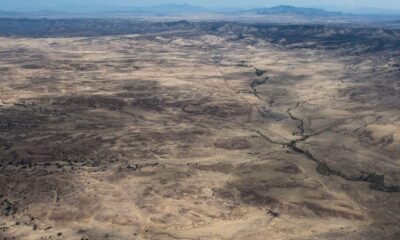Business
Senate Considers Ending Daylight Saving Time—Arizona Hasn’t Changed Since 1968!

A growing national consensus suggests the United States may finally put an end to the biannual clock changes. For Arizonans, this practice has been a thing of the past, allowing residents to escape the ritual each spring and fall.
A recent Gallup poll indicates that over half of U.S. adults support abolishing the clock change. In response, the Senate passed a bill in 2022 aimed at eliminating the practice altogether.
Former President Donald Trump has voiced his agreement with this position, citing the need for change in a December statement.
However, despite widespread irritation over the time change, Congress remains divided on the solution: should the nation adopt standard time or maintain daylight saving time?
Senator Ted Cruz from Texas recently led a hearing addressing this contentious issue, where members openly envied Arizona and Hawaii—both of which have opted out of the clock-changing tradition.
Senator John Curtis of Utah quipped about Arizona’s long-standing exemption, suggesting that halting the clock change would enjoy considerable support in his own state.
Cruz remarked that the practice is “an outdated and harmful” tradition.
The 2022 bill proposed to adopt “permanent daylight time,” which would keep clocks one hour forward year-round. Unfortunately, the House failed to reach consensus on how to proceed.
Confusion increased in December when Trump emphasized his intention to eliminate the clock change, aligning his stance more closely with public sentiment than the prior Senate proposal.
Daylight saving time was first introduced to the U.S. in 1918, aimed at conserving energy. However, public sentiment shifted, and Congress retracted its mandate just a year later, allowing states the autonomy to decide.
The Uniform Time Act of 1966 reinstated daylight saving as the national standard, permitting states to opt out. Subsequent adjustments in 2005 established the current clock-changing schedule, yet evidence of benefits remains flimsy.
The Congressional Research Service reported minimal effect on energy savings and no substantial impact on crime or traffic safety. David Harkey, President of the Insurance Institute for Highway Safety, confirmed that changes in daylight saving time do not correlate with reduced crash rates.
While crashes are more likely at night, Harkey reiterated that adjusting the clocks does not increase daylight hours during either winter or summer.
Arizona ceased observing daylight saving time in 1968 due to its hot climate and energy costs, though the Navajo Nation opted to continue the practice. Some Arizonans, like Lin Chao of the Arizona Trailblazers Hiking Club, find the current arrangement beneficial, particularly for morning activities.
Health experts argue for the benefits of maintaining standard time. Doctor Karin Johnson testified that consistent sleep patterns suffer under daylight saving time, linking irregular sunlight exposure to chronic health issues, including diabetes and mental health disorders.
From an economic perspective, Jay Karen, CEO of the National Golf Course Owners Association, highlights the financial implications, estimating potential losses for golf course owners amounting to $1.6 billion if daylight saving time were scrapped.
Several lawmakers emphasize that States should retain the right to determine their own time policies, with Curtis arguing for state-level autonomy.
Scott Yates, founder of the “Lock the Clock” movement, expressed his desire for a timeline to phase out the clock changes, calling it an antiquated practice. Both he and Johnson urged Congress to embrace a system that reflects meaningful time adjustments relative to the sun’s position.


















